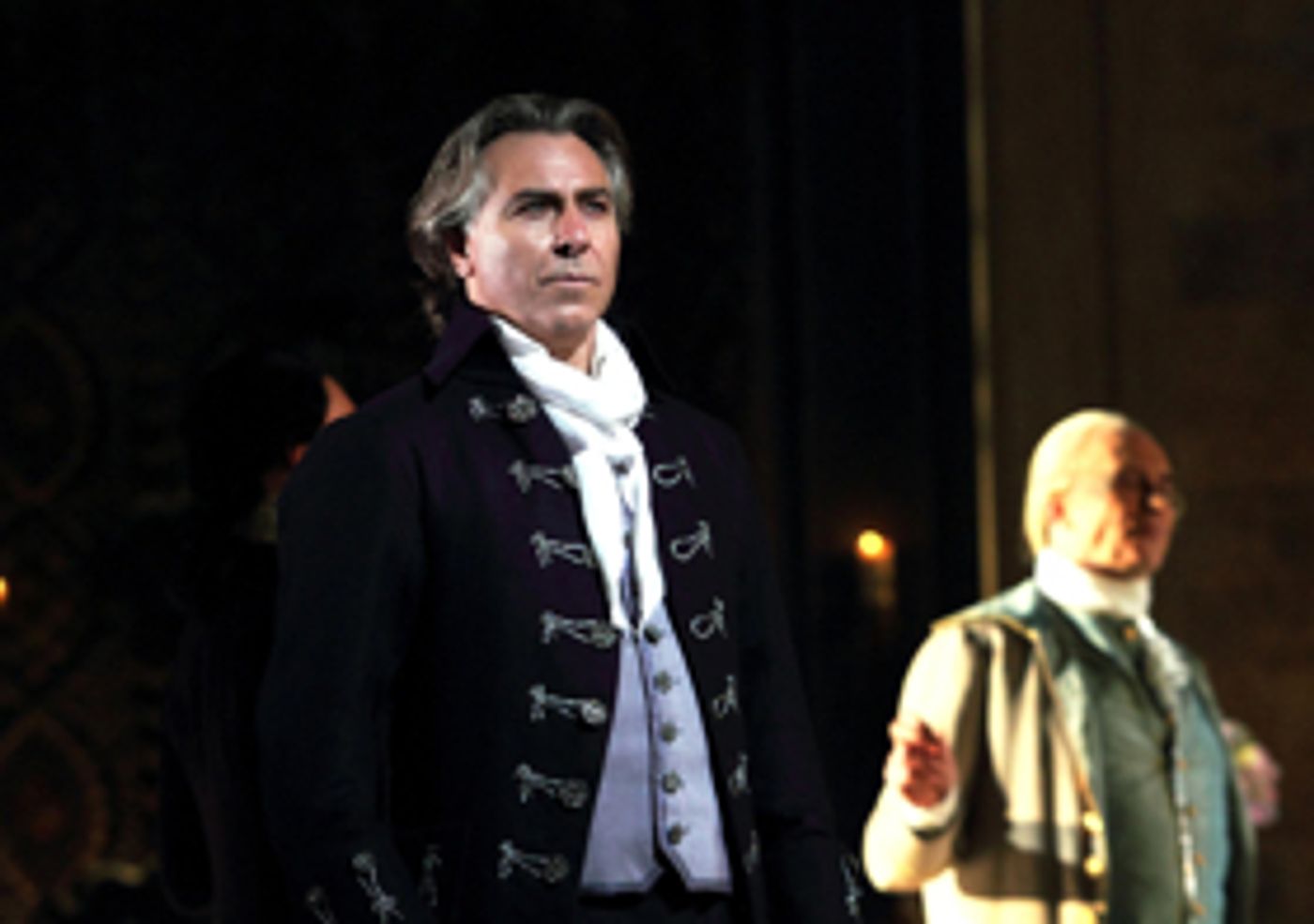Review: ANDREA CHENIER, Royal Opera House

![]() I blame the Carry-On movies.
I blame the Carry-On movies.
What do we really know about the French Revolution? Sure there's the guillotine - industrialised murder 150 years before the Nazis - and there's "Let them eat cake" and the champagne glass inspiring Marie Antoinette, but it's not much really. And, with the wigs and powdered faces on one side and the urban chic on the other, it's all a bit fey, a bit Jean-Paul Gaultier, a bit, well, camp.
But, as populist movements all over Europe take to the streets (not least in Paris) and anciens régimes seem paralysed by their own complacency and politicians' egomania, the warning from history about how legitimate political and social concerns can curdle into untrammelled bloodlust has never been more needed in my lifetime.
Even five years ago, I might have found Luigi Illica's libretto a little too reactionary, but no longer. Illica worked with Puccini on La bohème, Tosca and Madama Butterfly and you can tell, as the passion is dialled up to 11 from the curtain and stays there all night.
Umberto Giordano provides the music and does he know how to write a song (sorry, aria) for a singer, lining up showstopper after showstopper, as the heart soars and falls and tears prick the corners of the eye.
Roberto Alagna is our eponymous hero, a man who stands off to the side as the aristos dance their silly gavotte with the revolution literally on their doorstep. Alagna's singing is as perfect as one would expect of a man making his 100th appearance in this house, "Un dì, all'azzurro spazio" one of those showstoppers, but it's his acting that stands out in a role that demands it.
We see why he turns against the excesses of The Terror - it's the same man as showed such disdain for excesses of wealth - and we see his commitment to love as the only, indeed inevitable, salvation, the only thing worthy of excess. It's good too, to be reminded of just how young the likes of himself and Robespierre were - revolution is a young man's game and young men can be foolish.
Dimitri Platanias comes into his own in Acts Two and Three, the one-time servant Gérard now a leading light of the Revolution, but wrestling with his conscience politically and personally. Platanias brilliantly expresses Gérard's torment in "Nemico della Patria", but his wavering dooms Chénier and the woman they both love, Maddalena di Coigny.
Christine Rice and Elena Zilio shine in cameo roles, but Sondra Radvanovsky is utterly compelling as Maddalena, the woman who chooses Sidney Carton's path. "La mamma morta" may be wildly over the top, but we're deep in the opera and much to invested to care about the boundary between drama and melodrama - and, boy oh boy, does Radvanovsky nail it!
This first revival of David McVicar's 2015 production is gorgeous to behold - even if the sans-culottes look rather well fed - with Robert Jones's sets and Jenny Tiramani's costumes straddling the tricky line between authenticity and visual splendour. Daniel Oren's orchestra gives full value to the music, occasionally drowning out the voices, but only momentarily and, since it's all in Italian, there are surtitles to help.
Sometimes one emerges into the hustle of Covent Garden exhausted by the sheer length of an opera, but at just over two hours plus the interval, Andrea Chénier is less intimidating than other blockbusters. That said, you're still wonderfully exhausted by the passion and the performances - and the nagging sense that we really shouldn't let the same mistakes be made again.
Andrea Chénier is at The Royal Opera House until 9 June.
Photo Catherine Ashmore
Reader Reviews

Videos

